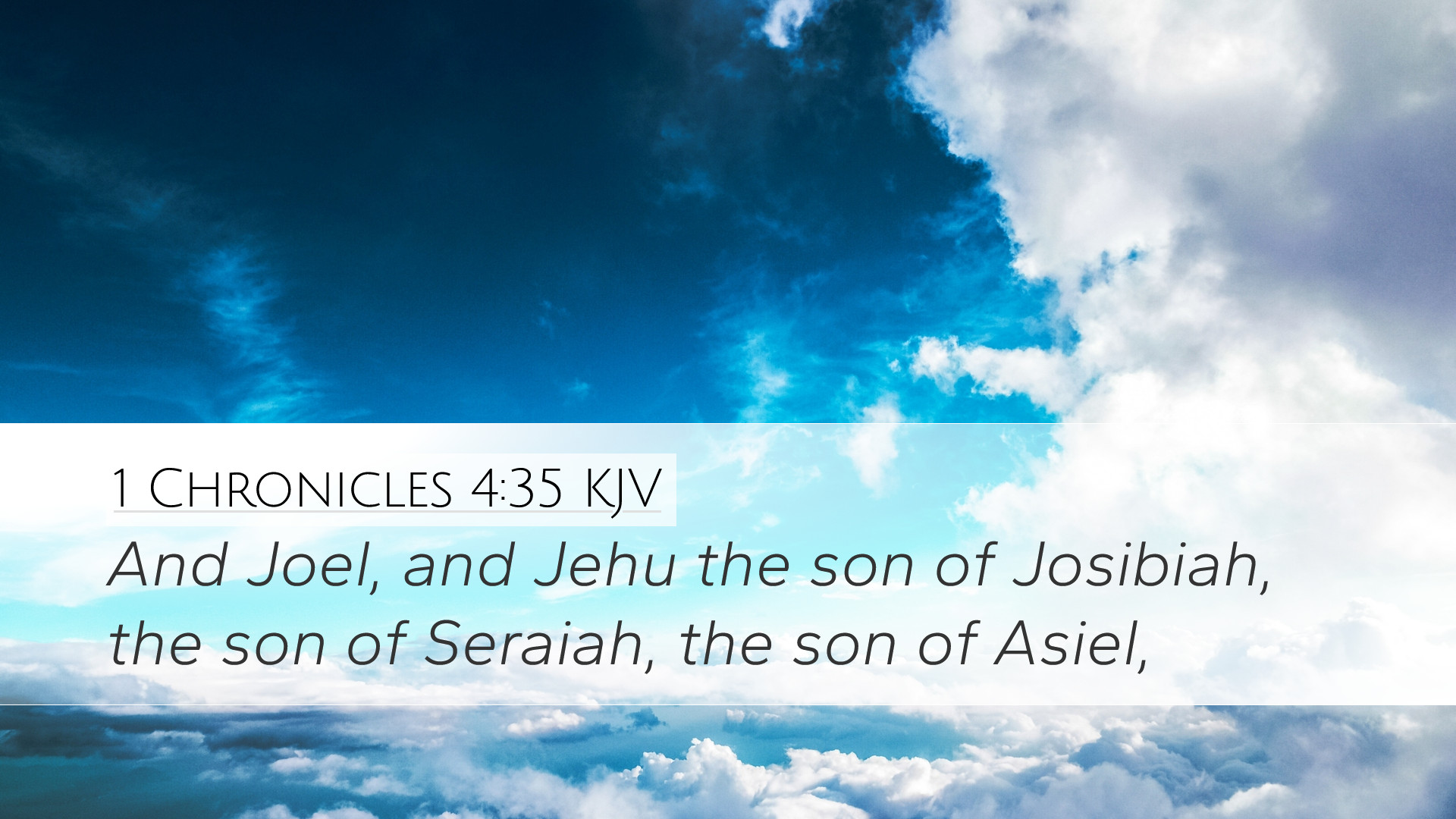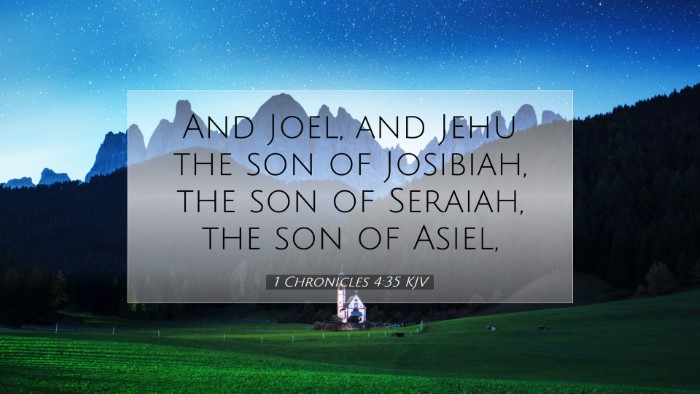Commentary on 1 Chronicles 4:35
1 Chronicles 4:35 states:
"And Ahiiah, and Ahitub, and Ahijah, and Kadmiel, and their brethren, were of the sons of Merari."
Contextual Overview
This verse is situated within a genealogical record that details the descendants of the tribe of Levi, particularly focusing on the lineage that served in the temple. The emphasis on family names illustrates the importance of lineage in Israel's history, particularly in relation to their priestly duties.
Insights from Public Domain Commentaries
Matthew Henry's Commentary
Significance of Names: Matthew Henry highlights that the mention of names, such as Ahiiah and Ahijah, is not merely for the sake of record but serves to remind the people of God's faithfulness to His covenant through generations. Each name represents a distinct heritage and a legacy of service to God.
The Role of Merari: Henry elaborates on Merari, one of the sons of Levi, who played a critical role in the service of the Tabernacle. The lineage of Merari contributed significantly to the physical and spiritual structure of Israel, thereby underscoring the importance of historical continuity in worship.
Albert Barnes' Notes on the Bible
Functional Heritage: Barnes notes that the individuals mentioned, notably those from Merari, were integral to certain tasks assigned in the temple’s service. This indicates that these individuals had specific roles, reinforcing the idea that every member of the community had a purpose in their worship and shared experience of faith.
Lineage and Identity: Furthermore, Barnes emphasizes the ongoing connection between lineage and identity. For the Israelites, knowing one’s heritage was crucial for understanding one’s role within the broader context of the community and God’s covenant. This has implications for modern believers in recognizing their identity within the body of Christ.
Adam Clarke's Commentary
Spiritual Application: Adam Clarke discusses the broader spiritual implications of these names. He reflects on how even seemingly mundane details in genealogies can inspire believers to appreciate their spiritual heritage. The faithfulness of past generations can serve as a powerful encouragement for present and future worshipers.
Continuity of Worship: Clarke underlines the continuity of worship practices through generations. The names mentioned illustrate how worship in the temple was not only a duty but also a cherished tradition passed down from father to son.
Theological Reflections
This verse offers rich theological insights that are relevant for pastors, students, and theologians alike:
- Identity and Purpose: Understanding our spiritual heritage can inform our sense of identity and purpose within the community of faith.
- Covenant Community: The passage reflects the essence of being part of a covenant community, where each individual contributes to the corporate worship of God.
- Faithfulness through Generations: The continuity of godly service through generations serves as a testament to God's enduring faithfulness.
Conclusion
1 Chronicles 4:35 encapsulates the importance of genealogies in scripture, revealing not only historical continuity but also deeply spiritual truths. The names of Ahiiah, Ahitub, and others signify the dedication of those who served in the temple, forming a link between past faithfulness and present worship practices. As modern-day believers, we are called to reflect on our own spiritual legacies and to honor the roles we play within our communities of faith.


